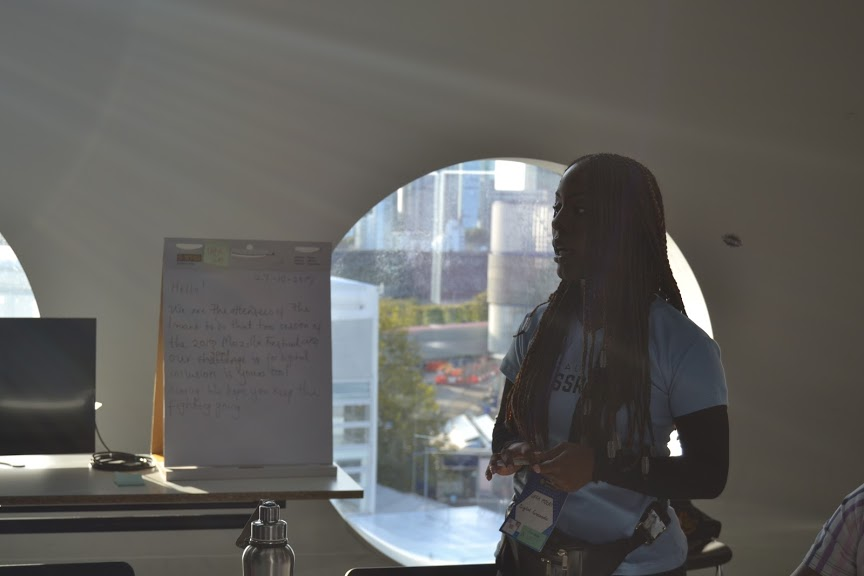
Esther Mwema (@hadassahlouis) and Uffa Modey (@Fafa416) are passionate about engaging youth in internet problems. They founded Digital Grassroots in 2017, and now they’re adding an open leadership program to their grassroots efforts. Over the past few months, Esther and Uffa have been working to launch Community Leaders for Internet Health during Open Leaders X.
I interviewed Esther and Uffa to learn more about Community Leaders for Internet Health and how you can contribute to the work.

What is Community Leaders for Internet Health?
Community Leaders for Internet Health will spotlight internet issues in diverse local community contexts and collaborate with local leaders to engage with tools for open campaigning towards Internet Health. Our program enables people in underrepresented regions to assess the state of the Internet in their community and share their stories on the challenges and opportunities encountered.
Why did you start Community Leaders for Internet Health?
Community Leaders for Internet Health was started as an avenue to raise awareness on the internet principles required to maintain a healthy internet ecosystem among youth from underrepresented communities. We realised that although young people now increasingly have access to the Internet, they are not often aware or included in defining best practises that ensure that the internet remains an open, inclusive, bottom-up and safe medium.
How does your program connect participants to the internet health movement?
This programs aims to identify individuals who can lead community driven projects on internet health. In this 6 weeks program, we educate the participants on key internet themes using the issues highlighted in the Internet Health Report as a reference point (openness, privacy & security, web literacy, decentralization and inclusion). The participants will also be guided on how to design and implement minor projects on internet health within their community. Through these projects, the participants can contribute to the internet health movement by documenting and sharing their experiences in fueling a healthy internet in their community.
What did you learn by bringing your program to MozFest 2019? How are you continuing the momentum after the festival?
Showcasing the Community Leaders for Internet Health program at MozFest 2019 enabled us to get relevant feedback on ways to make the program more impactful. We were able to build upon Mozilla Festival 2018 in which we showcased the Digital Rights Monopoly game to bring awareness on digital inclusion issues affecting young people we are working with. In 2020, we are putting our two MozFest experiences into practice.
Through our 6 week program, participants will collaboratively learn open leadership models necessary for raising awareness on the impact of the internet on society. The participants will also receive guidance on open campaigning for the Internet Health Report from their assigned mentors. We believe the collaboration between mentors and community leaders will keep the internet health movement active even up to the next MozFest.
How can others get involved in your program?
- Participate: If you're interested in becoming a community leader for internet health, apply here by January 30!
- Publicize: We need help in publicizing the program. We would like to impact on a wider community across the globe so we invite everyone to help us promote the program call for applications on their platforms.
- Mentor: We also need mentors for our program participants. Our mentors are Industry experts on internet health who can provide guidance to the participants while they implement their desired project. If you will like to mentor with us, kindly sign up here by January 30.
Lastly, we invite everyone concerned about capacity building programs on internet health to contact us with collaboration ideas for an impactful program.
The Open Leadership and Events team supports a series of programs and events designed to build and protect a healthy internet— and our best online lives. These programs and events are co-created by a group of dynamic, vibrant and varied community collaborators— from developers and designers to educators and students to artists and activists. Sign up for our newsletter.




